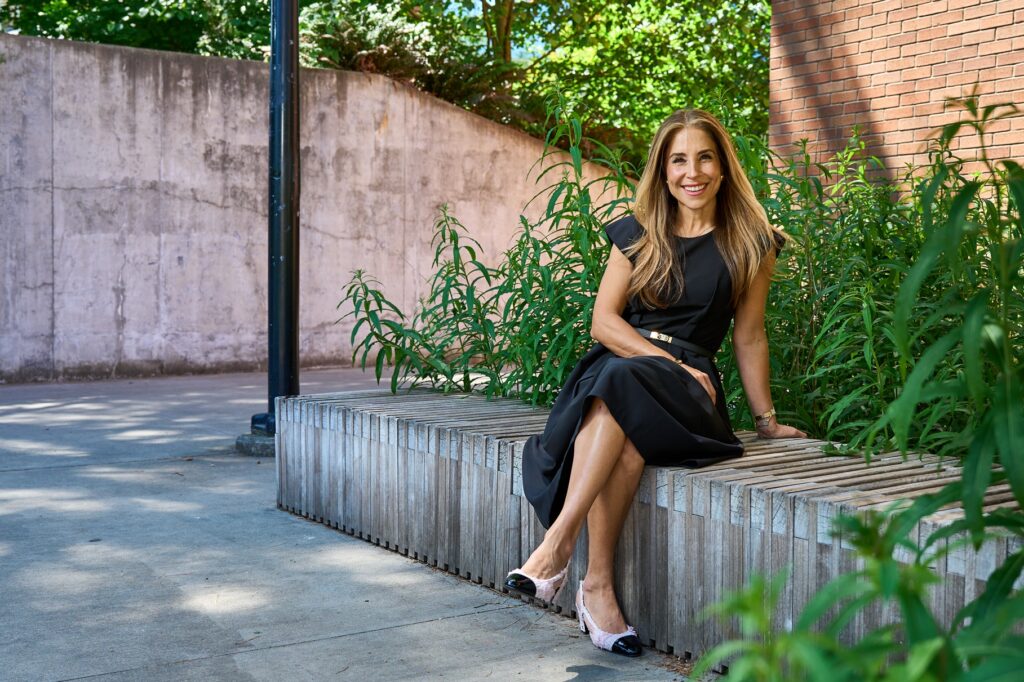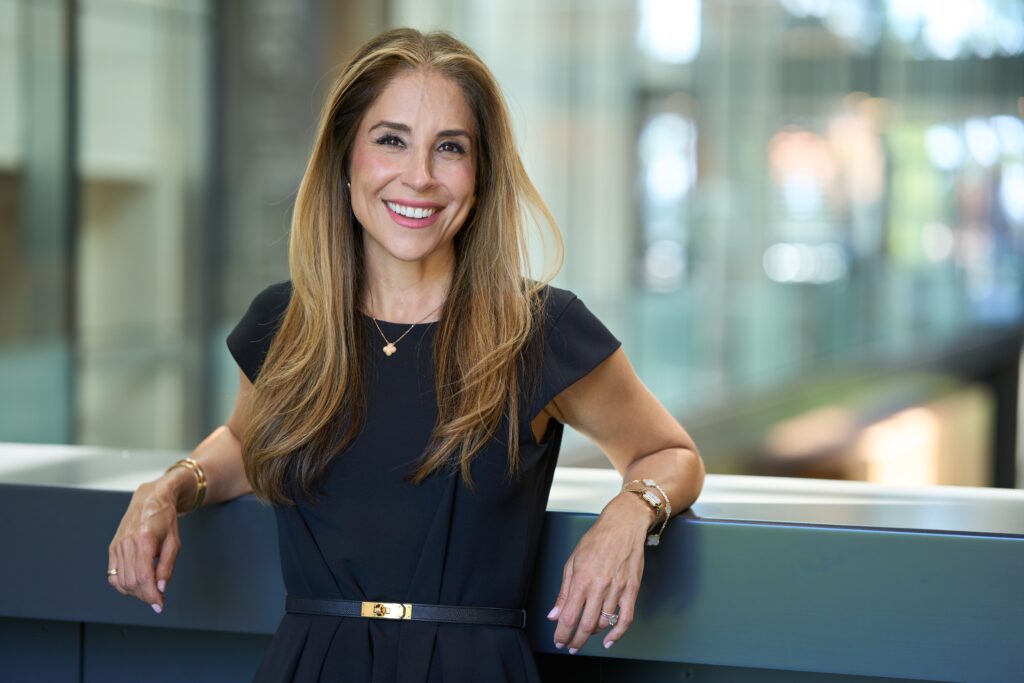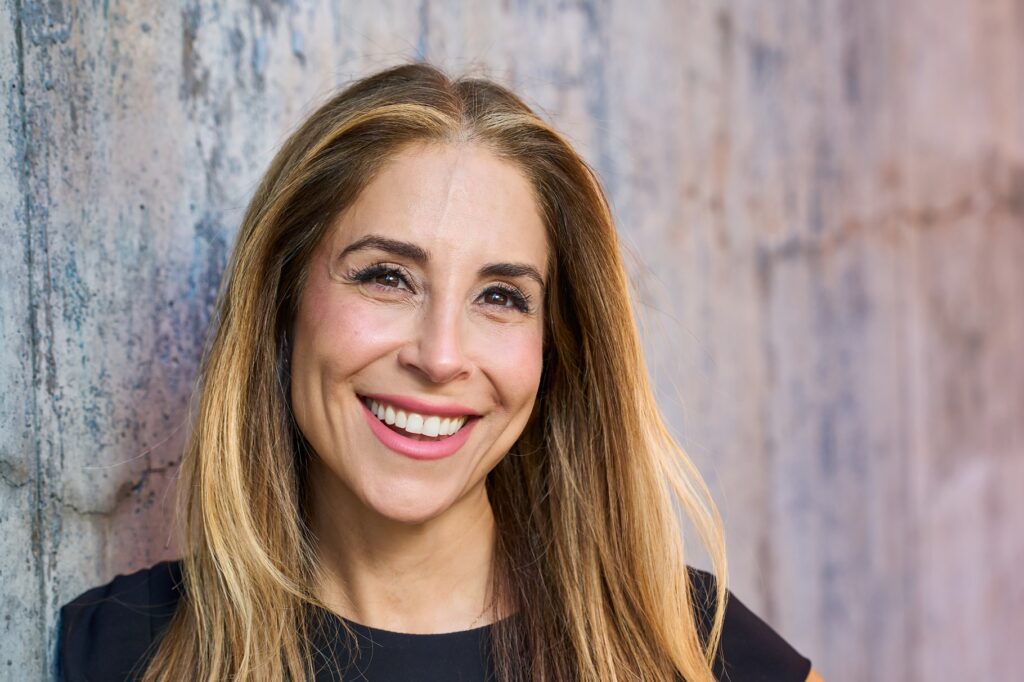A Seat at the Table: Why Dr. Yasmin Chambers Chose an Executive MBA
How one physician-leader expanded her impact at The Everett Clinic and launched a new venture.
For years, Dr. Yasmin Shayesteh Chambers has excelled in a specialized field of medicine, balancing clinical excellence with growing administrative responsibilities. However, as she stepped into healthcare leadership roles and joined discussions on budgets, operations, and strategy, she noticed a missing piece in her toolkit: business acumen.
Dr. Chambers (MBA 2023) is one of just 750 oculofacial plastic and reconstructive surgeons worldwide. Since 2015, she has practiced at The Everett Clinic in Seattle, where she currently chairs both the ophthalmology and optometry departments. She also serves as Associate Regional Medical Director, overseeing multiple clinical departments across a broad geographic region. It’s a position that demands both medical and business expertise.
“Looking back, I felt I should have a better grasp of the language of business,” she says. “It’s so lacking in healthcare. We don’t have any business classes in medical school. We lack any finance or leadership training. We focus solely on medicine.”
This realization led her to the Foster School of Business Executive MBA program.
“If you’re interested in having a seat at the table, where decisions are made that affect care, clinicians, and strategy, you need to speak the language,” she explains. “And in medicine, we are never taught the language of business. That’s what inspired me to pursue the MBA.”

Considering a business education
Dr. Chambers first considered an Executive MBA after attending finance meetings as department chair. “I felt like I could understand more, contribute more, and advocate for patients more, if I had formal training,” she says. “Those skills are essential once you move into administrative roles.”
Her mentor, who is also a physician-leader, encouraged her to pursue business school. Soon after, her Chief Medical Officer offered to sponsor her Executive MBA.
Dr. Chambers was accepted to several top programs, including Wharton. But in the end, the answer was clear. “Foster was in my backyard,” she says. “I live in Seattle. I practice medicine here. I have seen firsthand what this program did for physician colleagues I admire.”
The Executive MBA in one word: energizing
Dr. Chambers describes her time at Foster as energizing. “After medical school, residency, fellowship, and working 100-hour weeks, this felt like a breeze,” she says, laughing. “Business school was the first time I was learning just for me. It wasn’t for an exam, a grade, or an outcome. It was genuinely for the joy of learning.”
From the first day of classes, the Executive MBA gave her skills that sharpened her effectiveness as a physician-leader. She gained the confidence to participate more actively in financial discussions, interpret P&L statements, and question capital investment decisions.
“When you speak the language of business, you can contribute differently,” she says. “That’s rare for doctors. Most of us never get the opportunity to understand that side of healthcare.”
Executive MBA leadership courses also helped her think more strategically about managing teams. “You learn how to run a team better. How to listen. How to negotiate. How to approach complex systems. I learned the questions to ask. I became a better negotiator. There are a lot of soft skills and not-so-soft skills, like finance and accounting, that I now have a firm grasp of.”
Unlike some of her classmates, Dr. Chambers didn’t pursue the Executive MBA to change jobs. Instead, she says, it helped her make a more meaningful impact at The Everett Clinic. “Sometimes it’s not about a promotion. It’s about being better at what you’re already doing, making a positive difference.”

Applying business school skills as founder of The Lid Lab
In addition to her role supporting patients and staff at The Everett Clinic, Dr. Chambers is preparing to launch a business she developed during the Executive MBA program. The Lid Lab, which she co-founded with another oculofacial plastic surgeon, is a premium skincare line focused on the delicate area around the eyes, an often-overlooked area that requires precision and care.
The Lid Lab grew from her capstone project in an entrepreneurship course taught by Professor Benjamin Hallen. “That class made it feel possible,” she says. “It was inspiring. And now we’re taking the concept forward.”
What sets The Lid Lab apart is its singular focus: evidence-based eyelid care, grounded in years of surgical experience. “This is not just another beauty brand,” Dr. Chambers explains. “It’s about creating something that’s luxurious and clinically effective.”
The venture is also rooted in purpose. A portion of the proceeds supports international medical missions, where Dr. Chambers and her co-founder provide reconstructive eyelid surgery in underserved communities. These missions address critical conditions such as eyelid cancer, trauma, and congenital anomalies. Just as vital, they partner with local surgeons, offering hands-on training to build sustainable capacity long after the mission ends.

Balancing parenthood and the Executive MBA
At the start of the Executive MBA program, Dr. Chambers was already a mother of two young children. And during the first quarter, she became a mother of three. Her newborn joined her in the classroom. “She sat in her little bassinet next to me. I gave presentations holding her. I nursed her in Foster’s nursing room. My professors all knew her and loved it.”
She points to a moment with finance professor Jonathan Karpoff. Unable to attend a final exam while recovering from childbirth, she asked how to make it up. His response stuck with her. He wrote in an email, “In truth, I can only imagine the difficulty of focusing on things like the exam right now. Being able to do such things is a mom’s superpower.” Karpoff gave her several options to complete the work, allowing her the greatest possible flexibility as a new parent.
“That was such a human way to lead,” Dr. Chambers says. “He trusted me. That’s the kind of leader I want to be.”
She credits her support system—her husband, mother, colleagues, classmates, and faculty—for helping her stay on track. “It was truly conducive to learning. They understood life and supported me through it.”

Advice for future Executive MBA students
Dr. Chambers encourages others, especially physicians, to consider business education. “Medicine doesn’t prepare you for leadership. But if you want to improve healthcare, you need a seat at the table. And to do that, you need to understand both sides.”
Her advice? Do it. “You won’t regret it. There’s no perfect time. I had three kids, a full surgical practice, and family caregiving responsibilities. But this program was a gift I gave myself. I learned, I grew, I made lifelong friends. It made me better at everything I do.”
Learn more about the Executive MBA program here.
